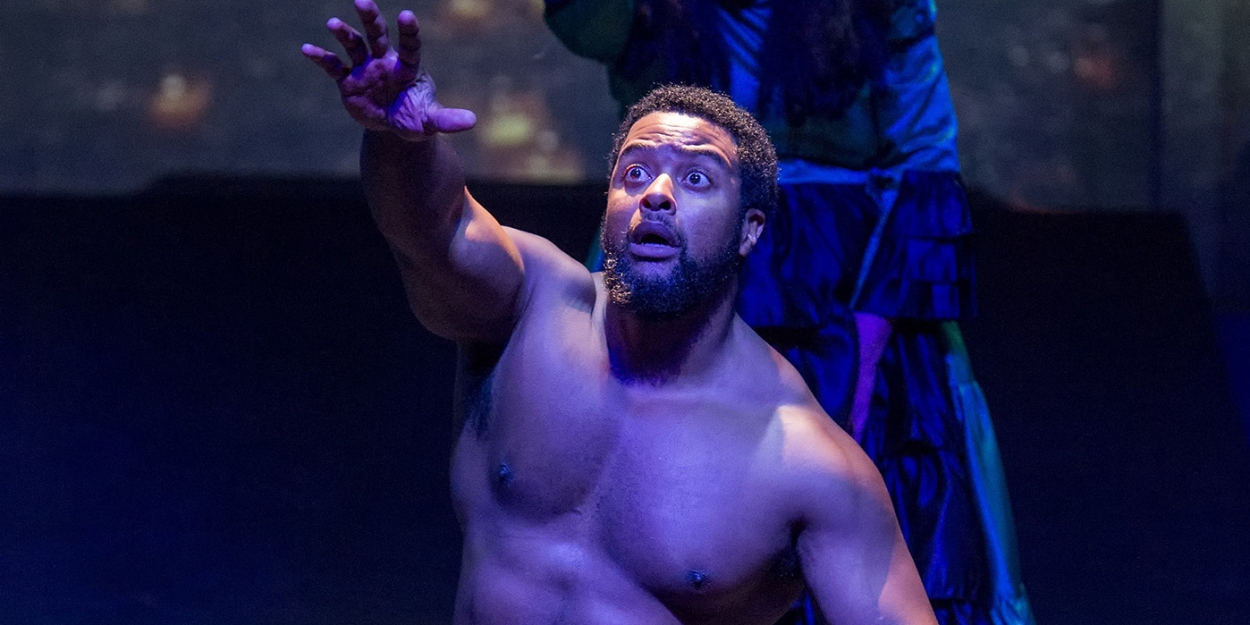Review: MACBETH at A Noise Within
A clever but forgettable production of the classic

There are many reasons Macbeth is one of Shakespeare’s most treasured works. It has a natural propulsion that can carry contemporary audiences through its deeply human narrative. It drips with sensationalism— violence, sensuality, witches, ghosts, madness, and prophesy are well-placed throughout its five acts. It has a lot to say about gender, about power and its ability to corrupt, about the selfishness inherent to human nature. In approaching the play for a new production at A Noise Within, director Andi Chapman has grappled with these facets of the work and— aside from a few key missteps— has delivered a clever, if forgettable, production.
Right from the opening moments, a surreal prologue in which Lady Macbeth and her husband mourn the loss of their infant, it becomes clear that Chapman has mined the text for new perspectives to unearth in her retelling. The biggest issue with the production is simple to diagnose. All of Chapman’s most memorable images are constructed as interstitial moments. A shadowy figure emerging from a cloud of mist, a silhouette of Macbeth shuddering as he drives a dagger into Duncan’s chest, a glimpse of the ghost of the Macbeths’ child. Absolutely none of these powerful visuals are married in any way to Shakespeare’s text as declaimed throughout the play. I would be incredibly interested in seeing Chapman’s choreographic, wordless retelling of this story, but weighted down by the meandering soliloquies and attempt at naturalistic staging that undermines the dialogue, the impact of these images is diluted.
Additionally, while some imagery is effective, much of it feels reductive to a point of melodrama. The play tells us the Macbeths have lost a child, but invoking that image as the sole motivator behind their actions erases the nuance surrounding their descents into corruption. Oversimplification strands the casts’ performances in a stilted, stuffy rendition that lacks the gripping humanity of the text. In one moment, Duncan passes his crown to Lady Macbeth and she holds it for a moment with her mouth agape. There is something to be said about clarity, attempting to communicate the story through imagistic moments, but there is also something to be said about settling for the most obvious image in every instance. At times, the production feels distrustful of the audience in its over-explanations.
Going in, I did not have questions about the turn-of-the-century, New Orleans setting of the show. Leaving, it seemed an entirely extraneous choice which made swords and crowns feel out of place and was explored little in terms of texture, tone, or subtext. What does this setting have to say about war? What does it have to say about bloodlines? Even the witches (which I felt certain would be the reason for the location change) felt standard to any other production.
For me, the highlight of the show was a refreshingly honest delivery of the Porter’s speech by Ahkei Togun. Not only did this differ from the desperate attempts at laughter I’ve come to expect from this sequence, it was a welcome change in pace and tone from the rest of the production— a moment of humanity crouched within the unfolding melodrama. Audiences certainly will ‘remember the porter’, as Togun approached the delivery with the weight one might expect from a performance of Hamlet, all while directly addressing us. (Much of the rest of the show is delivered past the tops of our heads for some reason.) I will never advocate for more of the England sequence to be included in Macbeth (by Act IV, we are often ready to wrap things up), but with Randolph Thompson’s resolute Malcolm, for once, I felt disappointed by the extensive cuts to the text. His speech closing out the performance, delivered against projections of rain, was another highlight.
ANW’s current Macbeth is a concise, easily understood production. While it may not have the power to inspire lifelong love of the play, it is a fitting introduction for those unfamiliar with the story. If nothing else, projections by Nicholas Santiago and original prologue music by Dontae Winslow and sound design by Jeff Gardner will keep you invested.
Reader Reviews

Videos
